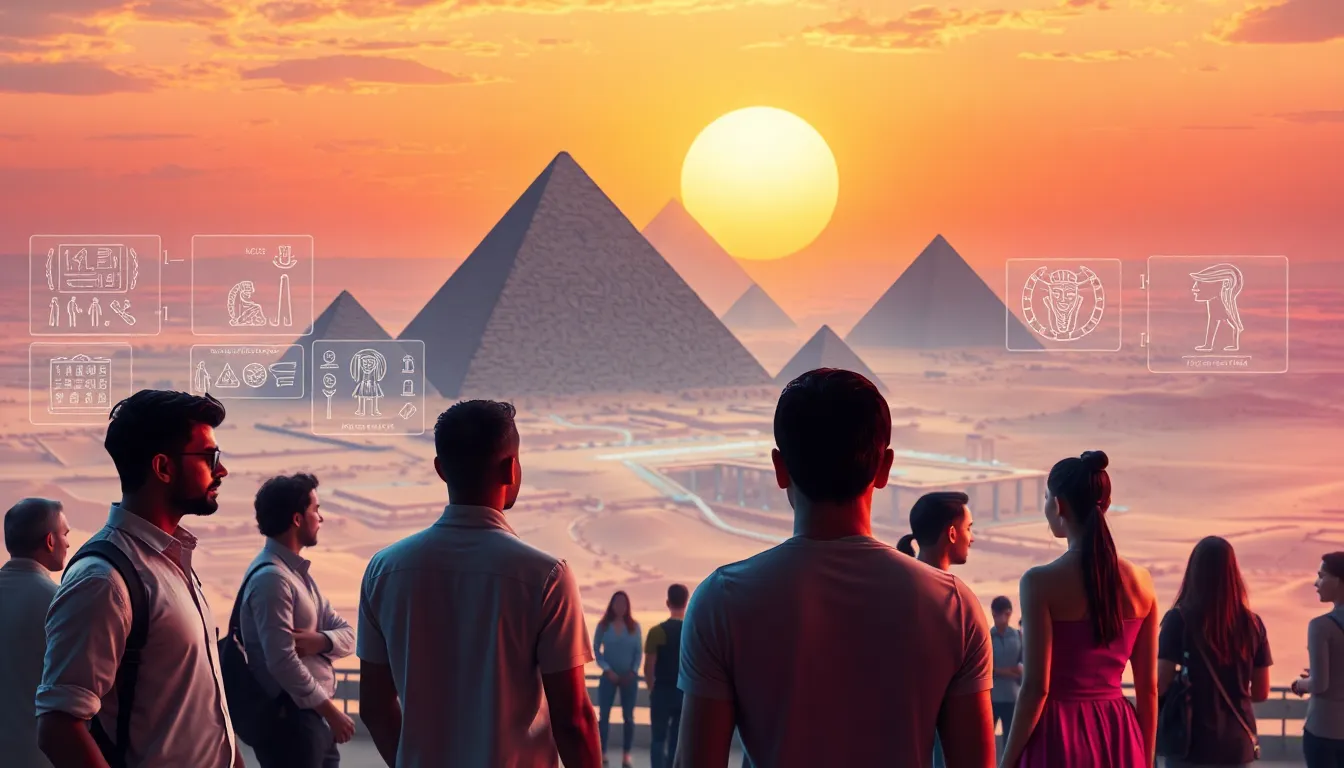Picture this: You’re controlling a character in a sprawling desert, navigating through ancient tombs, dodging traps, and battling mummies, all while deciphering hieroglyphs. Sounds like a dream, right? For gamers, ancient Egypt offers a captivating backdrop that’s both thrilling and mysterious. Just imagine combining history’s allure with the excitement of gaming, this is where ancient Egypt seamlessly merges with our favorite pastime, and it’s about to get even more exhilarating. Let’s explore the enchanting world of ancient Egypt and its profound influence on the gaming industry.
Table of Contents
ToggleUnderstanding Ancient Egypt’s Influence on Gaming

The allure of ancient Egypt is undeniable. Its rich tapestry of history, culture, and mythology has not only fascinated historians but also game developers. From the golden sands of the Sahara to the majestic pyramids of Giza, this ancient civilization has become a treasure trove for creativity and storytelling in gaming.
Many developers draw inspiration from the vibrant stories and enigmas of the past, creating immersive worlds for players to explore. Ancient Egypt’s complex society offers layers of narrative potential. Gamers encounter themes of power, divine leadership, and the quest for immortality, all interwoven through gameplay mechanics and character development. The hieroglyphs, artifacts, and architectural marvels seen in games pay homage to a civilization that thrived thousands of years ago, reminding players of the magic that lies within history.
Key Themes in Ancient Egyptian Culture
When we think of ancient Egypt, a few key themes come to mind. These themes frequently appear in games, enriching the gaming experience:
- Religion and Mythology: The pantheon of gods like Ra, Anubis, and Osiris plays a central role, symbolizing order, chaos, and the afterlife. Games often reflect these beliefs, intertwining them into quests and character arcs.
- Death and the Afterlife: The Egyptians were meticulous about burial practices and the journey to the afterlife. Video games frequently use this theme, crafting quests where players face challenges related to death, resurrection, and the afterlife.
- Power and Hierarchy: Ancient Egypt is known for its powerful pharaohs and their divine right to rule. This aspect can be seen in strategy and simulation games, where players often take on leadership roles, managing resources and expanding their dominion.
Popular Games Set in Ancient Egypt
Several games transport players to the sun-soaked land of ancient Egypt, each featuring unique storytelling and gameplay. Let’s take a closer look:
Elements of Ancient Egypt in Game Design
Games like “Assassin’s Creed Origins” and “Snap the Tomb” expertly incorporate ancient Egyptian elements into their design. The sprawling landscapes, intricate details in architecture, and authentic representation of daily life immerse players in the time period. The visual aesthetics and sound design mirror the ambiance of the era, making gamers feel as if they’ve traveled back in time.
Mythology and Lore
Mythology is woven into the very fabric of many games. Players often encounter deities and mythical creatures, experiencing quests that investigate into the rich lore of ancient Egypt. Titles like “Smite” and “Total War: Pharaoh” showcase deities in action, allowing players to engage with these mythic figures.
Architecture and Environment
A signature of ancient Egyptian culture is its stunning architecture. From the grandeur of the pyramids to the detailed reliefs found in tombs, games use this architecture to shape environments that are both visually stunning and narratively rich.
Gameplay Mechanics Inspired by Ancient Egypt
The gameplay in these titles often showcases mechanics inspired by ancient Egyptian culture. For instance:
- Resource Management: Many games involve gathering resources like food, gold, or artifacts, mirroring the economic systems that thrived in ancient Egypt. Players must strategize to build their estates or armies, reminiscent of how pharaohs managed their realms.
- Exploration and Discovery: Exploration mechanics encourage players to traverse vast deserts, uncovering secrets hidden within ancient ruins. This mirrors the real-world archaeological endeavors of discovering tombs and temples that have lain dormant for centuries.
- Puzzle Solving: Puzzles steeped in symbolism and hieroglyphics challenge players, reflecting the mystery and complexity of ancient Egyptian knowledge and belief systems.
Exploring the Player Experience in Ancient Egyptian Games
Immersion is the name of the game, and titles set in ancient Egypt offer experiences that are both enlightening and thrilling. Players don’t just control characters: they live the life of an ancient Egyptian, experiencing the society, struggles, and achievements of the time.
Also, players are drawn to the layered narratives that keep them engaged. Quests are often tied to the cultural context, offering insights into ancient beliefs and practices. This educational undertone coupled with engaging gameplay creates a harmonious blend of fun and learning, helping players appreciate the complexities of the civilization.
